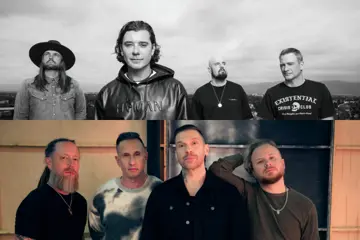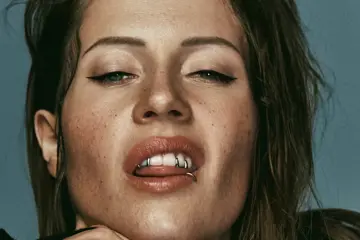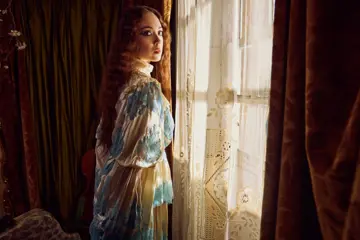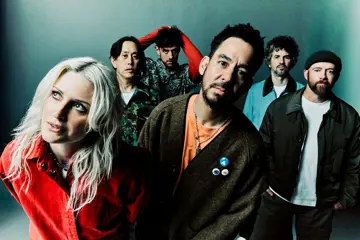David Collins and I may have caught the same bus in high school, but that doesn't mean we're heading in the same direction. In fact, the Perth-based photographer isn't so sure about which road many of his contemporaries are careering down if his latest solo exhibition is to be given serious thought. And with a title like Plastic Eden, it's unlikely it will receive anything less when it opens at Venn Gallery this Friday night.
“I'm not making a 100 per cent judgement; I'm very much a part of this situation,” Collins reassures. This might come as a small surprise to those who saw Collins' previous show at Venn, Momentary Thrill; an articulation of how people interact and respond to each other necessarily placing Collins outside of his highly crafted images. In contrast, he says, “This exhibition is about a long-term anxiety, a global concern” – marking a new phase for the soft-spoken young artist.
At once a progression of his visual style and a stark thematic departure, Collins is quick to dismiss the religious associations of Plastic Eden and reveals a set of concerns about humans and the environment. “Everyone has this escapist reflex when the responsibilities of everyday life become too much so we all revert back to some ideal of Eden,” he says. This couldn't be more topical for West Australians, as Collins seamlessly links our stunning natural beauty to the historically rendered idea of paradise. “People like the idea of nature,” he continues. “We're very much open to this idea of being perfectly comfortable with everything around us – water, shelter, animals roaming free – but it's a fantasy, an ideal.” To Collins, this contradiction leads to an “ecological awakening”. “We like to have it both ways,” he muses.
Experiences of consumerism and the ever-looming threat of environmental degradation inspired Plastic Eden, however, Collins goes on to cite Renaissance aesthetics and cinema as his major influences. “I love Caravaggio's use of chiaroscuro lighting and subliming the figures. They're extended and reaching. There's that flowing of line.” The images Paper Moon and We Want Gold Fruit are sumptuously brooding examples of this visual language. Indeed, when Collins speaks about his photo shoots in dramatic terms the filmic quality of his work becomes even more apparent. At one point “tap dancing”, “ad-libbing” and “improvisation” are mentioned in the same sentence, making it clear there is much more to this photographer than pre-Raphaelite whimsy. “I'm trying to talk for a wider audience than myself so I want to involve other people [and] let them contribute to the dialogue.”
Don't miss a beat with our FREE daily newsletter
While Collins' kitsch-loving eye was largely formed within the cellulose of Bertolucci and Greenaway he says that, “the last film that stuck out in [his] mind was Lars von Trier's Melancholia”. The poster image alone, featuring porcelain Kirsten Dunst, is all it takes to understand the resonation, especially when he begins to talk about family. “I've only grown up around powerful female figures,” he says. “I don't see them or perceive them as being anything other than that.”
It makes perfect sense then that Collins' next project is the cover art for rock goddess Abbe May's upcoming second album. For now though, contemplating our precarious place in the world is as palatable as it looks. As Collins concludes, “No one's going to look into a work and read into it if it's like a cake box, a decoration.”
WHAT: Plastic Eden
WHEN & WHERE: Opens Thursday 7 February - Venn Gallery, Perth WA















